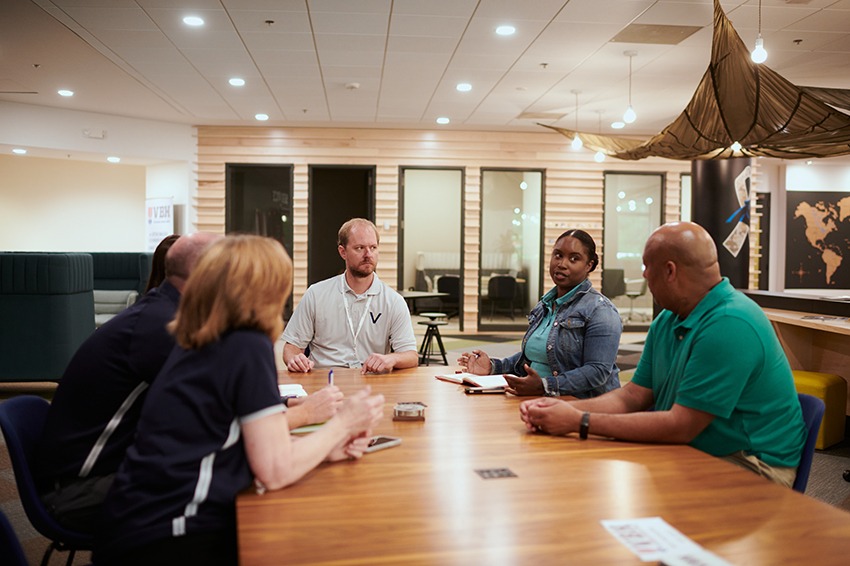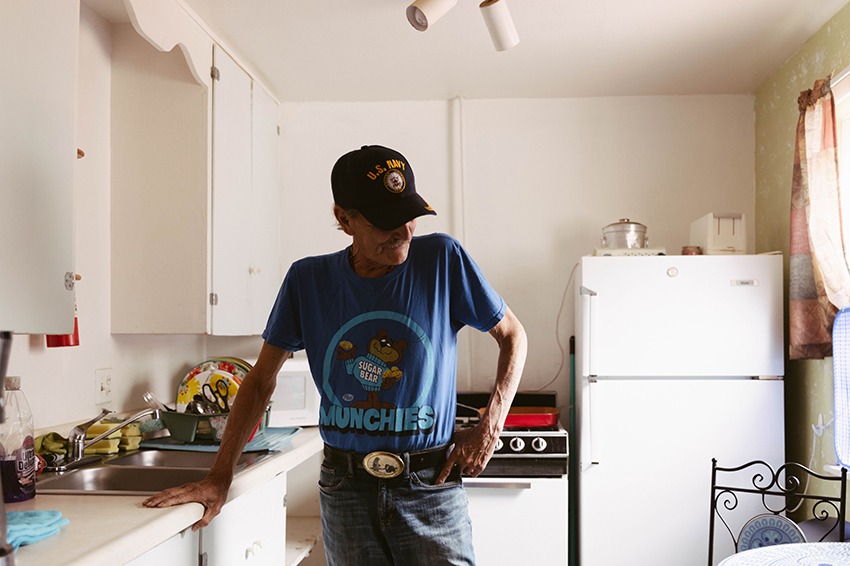Homelessness is solvable.
This sentence is not just a belief that drives our work. It is a fact that we see communities proving true every day. These cities and counties are driving reductions in homelessness, working toward a state where homelessness is rare and brief for entire populations.
Despite growing evidence that homelessness is solvable, we regularly find ourselves up against a powerful myth. The misbelief that homelessness is intractable fuels skepticism and ineffective policies. It lowers public accountability for what can be done. Altogether, it delays a new reality that is achievable and urgently needed. In doing so, it compromises the lives of our neighbors, the health of our communities, and the promise of a fair society.
A more accurate and powerful understanding of homelessness is needed to interrupt this cycle and set us on the right path. We believe that the stories of communities solving homelessness can inspire learning and seed new expectations to make homelessness rare and brief everywhere.
But that will require a shared effort to establish a new story about homelessness.
Dismantling harmful misbeliefs about homelessness
Homelessness is often understood as intractable because people have defined the problem incorrectly.
For example, homelessness continues to be harmfully and widely misunderstood as a byproduct of “deficits” of individuals. Studies on public perception have found that people often associate homelessness with “irresponsibility” or struggles related to substance abuse or mental health.
Homelessness has also been misunderstood as a static problem that will yield to technical interventions, rather than as a complex, dynamic one that requires nimble, continuous real-time problem-solving.
The most powerful evidence that these assumptions are incorrect is the fact that decades of interventions grounded in these assumptions have failed to reduce and end homelessness. In fact, practices that focus on behaviors associated with homelessness — like criminalization or offering housing contingent on behavioral changes — have further perpetuated it.
Jennifer Jaeger, a leader in Rockford, Illinois, has made it a rule in her community meetings that no one can blame a person’s characteristics as a barrier to housing.
“Nobody is allowed to say something like, ‘we can’t house him, because he’s drunk all the time.’ No, we’ve housed plenty of people who have had alcohol problems,” she said. “We must focus on: what is it about our community and our housing structure and our landlords and our other systems that is keeping that person on the street. How can we overcome that system barrier?”
But in many cases, these misbeliefs have contributed to a self-fulfilling prophecy. They obscure the problems that must be addressed to solve homelessness, falsely reinforcing that it cannot be solved. To escape the status quo, we must update our collective story on what kind of problem homelessness is and how to solve it.

Homelessness is complex, and it is solvable.
Homelessness is a solvable, systems problem
We work with more than 80 communities across the country working to measurably end homelessness. To date, 14 communities have achieved functional zero for a population — a measure of solving homelessness — on their way to solving homelessness for all populations. Many of these communities are continuing to drive reductions in homelessness as they strive toward a sustained state where homelessness is rare and brief.
By working with these communities, we have seen not only what kind of problem homelessness is, but the path to solving it.
Homelessness may be a result of the way systems are designed and policy decisions that have been made. But none of this is fixed.
Communities are proving we have the power to design new systems and make different decisions. These communities are creating homeless response systems that account for everyone experiencing homelessness and define success by whether that number is going down. They are working with other systems — like health care — to create shared accountability for getting to zero. They are adapting their approaches to respond to homelessness as a dynamic issue, applying the principles of public health that have helped us drive population-level outcomes for other complex challenges.
Homelessness is complex, and it is solvable. We can fix and reimagine community systems so that homelessness never has to become an inevitable, inescapable, or enduring force in someone’s life.
Telling a new story about solving homelessness and its solutions
We believe that these communities have a powerful role to play in contributing to new expectations for ending homelessness in communities across the country. In order to amplify the reach of their stories, we are launching Homelessness Is Solvable, a campaign dedicated to lifting up their accomplishments, learning, and voices. Over the coming months, we will be drawing upon learning from these communities to offer guidance on what groups and individuals can do to support this movement.
We also invite you to explore communities’ stories and what you can do to support their efforts.
Homelessness may be a mirror to our failing systems and decisions. But when we solve it, it shows us something very powerful and important about our communities. It reflects our power to reimagine systems and ensure no one is left behind.
Homelessness is solvable — and it is being solved, right now. With your help, we aim to create a demand to make this true everywhere, for everyone.




